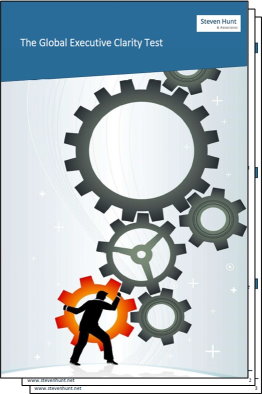Working hours are up in 2020. No surprises there, as people commute less and work from home more. The average working day has gone up by 30 minutes, that’s roughly 6%.
A bigger surprise is the low rise in productivity. That’s risen just 8%. Early evidence is that interruptions in the office have been replaced by long emails and endless Zoom calls at home.
On the upside, those who were new to remote work have got used to it now.
Managers in healthy company cultures – and that’s most of the managers I talk to – aren’t micro-managing their remote workers. Big Brother has better things to do. Remote work is being managed by mutual trust, good communication and resilience.
The best companies know now is the time to push productivity up.
To do that, global managers need clarity on current performance across functions and locations. That starts with which processes are working well and which need extra support and more resources. This is difficult when you’re not on the ground or when other countries complete the process, (countries that you can’t travel to now.)
The best way to get that clarity to mobilize your relationships, get into robust feedback dialogs and use data. This is what the best companies are doing.
Elvis impersonator or Usain Bolt?
Weak companies right now are over-reliant on data. Data is backward-looking; it’s historical. It works well is a stabile environment. It’s best where operational assumptions are constant and market characteristics are stable. Weak companies formalise this with detailed benchmarking, until spreadsheets and powerpoint slides coming out of their ears.
Benchmarking alone fails in a rapidly changing situation. Firstly, it gives underperforming executives an easy excuse, “Well, things aren’t so good here. But I’m doing better than our competitors.”
Secondly, in the long-term it leads to strategic inertia: “I don’t have to change yet, because nobody else in the industry has.”
Thirdly, the results can be catastrophic. From IT to retail, manufacturing to energy… how many companies are missing the boat on major shifts in their industry because their mindset is simply to survive or to be as good as our competitors?
Aiming to be as good as your competitors is like being an Elvis impersonator. You might look good, but you’re never going to stand out, as the original leader.
Much better to be a winner like Usain Bolt. His aim was to break records and win golds. He’s not going to do that by keeping up with his competitors, analysing the data on their runs. He sets his own standards and metrics to push up his performance.
Clarity of purpose: Being the best for your customers
Winners listen to the feedback because they have a mindset of “I want to be the best we can be for our customers”.
This forces everyone in the company to listen to the customer now. It pushes people share important business insights from customers, and suppliers. It makes the internal meetings full of robust dialogs about innovation, and less about administration.
When you’re focused externally on the customer, you cut the time wasted on internal management politics and game playing.
The winning companies are already profiting from their culture of trusting relationships and robust dialogs. In global companies with this culture, confidence is rising and productivity is shooting up across the global organisation. And best of all… you get high performance from the comfort of your home sofa.
















